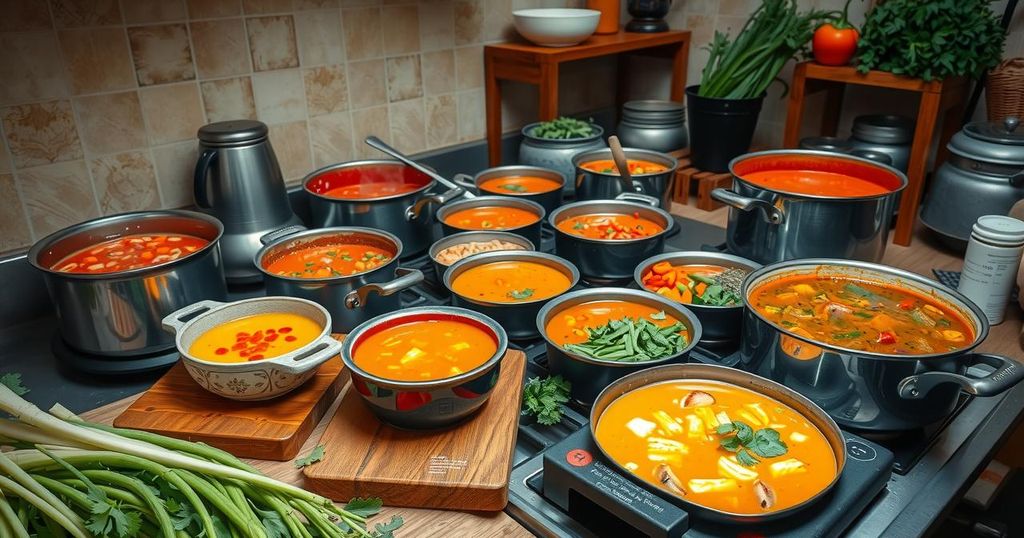Lifestyle
AFRICA, CONFLICT RESOLUTION, CONGO (KINSHASA), DEMOCRATIC REPUBLIC OF CONGO, DEMOCRATIC REPUBLIC OF THE CONGO, DRC, EU, EUROPEAN COMMISSION, EUROPEAN UNION, GOMA, HAD, HADJA LAHBIB, HEALTH, HUMANITARIAN, HUMANITARIAN AID, INTERNALLY DISPLACED PERSONS (IDPS, PEACEKEEPING, PREPAREDNESS, CRISIS MANAGEMENT AND EQUALITY
Daniel O'Connor
0 Comments
EU Allocates €60 Million Humanitarian Aid for the Democratic Republic of the Congo
The European Commission has allocated €60 million in humanitarian aid for the DRC in 2025. The funding targets urgent needs of displaced populations in Goma and focuses on shelter, clean water, food security, and education. The EU’s total humanitarian aid for the DRC exceeds €272 million in 2023. Protection of civilians and combating gender-based violence are key priorities amid ongoing conflict challenges.
The European Commission has announced a new humanitarian aid package of €60 million for the Democratic Republic of the Congo (DRC) in 2025. This funding will primarily address the urgent needs of newly displaced populations around Goma due to recent conflicts. The EU aims to enhance emergency assistance amidst ongoing violence and humanitarian challenges in the region.
The aid will target several critical areas, including:
– Shelter and camp management
– Provision of clean water systems and latrines
– Distribution of basic food rations or cash transfers
– Educational support for conflict-affected children in emergencies.
With this new contribution, the EU’s humanitarian assistance for the DRC reaches over €272 million in total for 2023. The EU also executes humanitarian flights delivering essential personnel and supplies throughout eastern DRC, underlining their commitment as major donors to the humanitarian response.
Protection of civilians is paramount in EU-funded operations. The support strategy particularly focuses on combating gender-based violence through prevention measures and integrated health services, alongside socioeconomic responses to the pressing humanitarian needs in the DRC.
Commissioner Hadja Lahbib emphasized the EU’s dedication to assist vulnerable populations amid severe humanitarian access restrictions due to ongoing conflicts. She highlighted the need for adherence to international humanitarian law and the protection of civilians near frontlines and displaced persons camps. Commissioner Lahbib advocated that only dialogue and negotiations can resolve the prevailing conflict.
The humanitarian situation in the Democratic Republic of the Congo is dire, driven by a combination of conflict, poverty, and disease outbreaks. As the EU and its Member States have been providing continuous support since the onset of the crisis, recent escalations have further aggravated the challenges. Prior to the latest conflict phase, around 800,000 internally displaced persons resided in Goma and surrounding areas, many of whom have recently fled the violence. As of late October 2024, approximately 480,000 individuals have been newly displaced in North Kivu, in addition to 178,000 in South Kivu, contributing to an alarming total of 6.4 million displaced across the nation. Humanitarian access remains severely restricted in regions experiencing conflict, making aid delivery increasingly difficult for partners.
The European Union’s commitment to humanitarian aid in the Democratic Republic of the Congo underscores the critical need for support amid a worsening crisis. The allocated €60 million will significantly contribute to addressing the immediate needs of the displaced and affected populations, reinforcing the EU’s role as a leading donor in the region. Protecting civilians and ensuring access to essential services are priorities as humanitarian efforts continue to navigate the complexities of ongoing conflicts.
Original Source: civil-protection-humanitarian-aid.ec.europa.eu




Post Comment